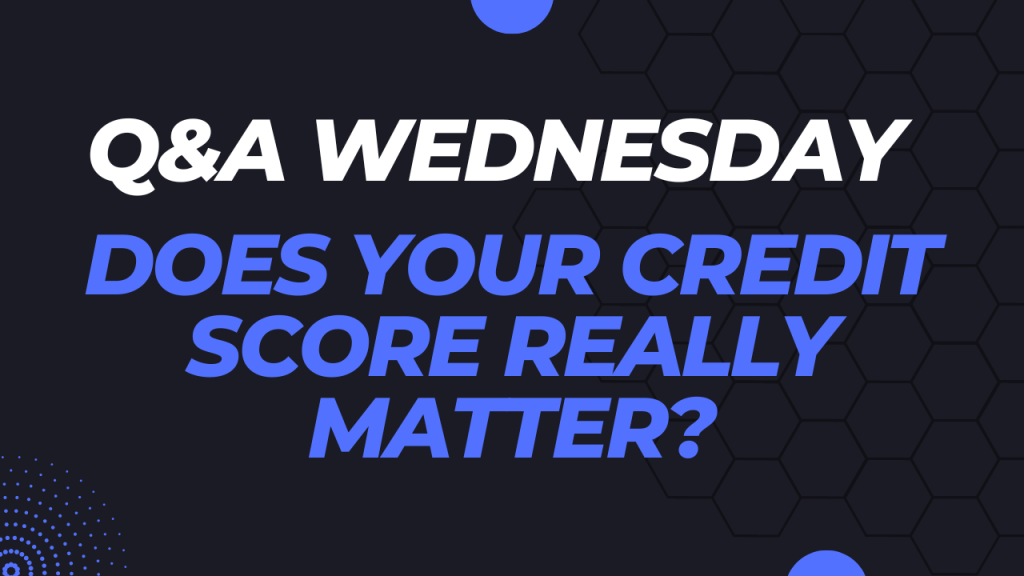Welcome to Q & A Wednesday on Millionaire Habits, where I answer one of your questions every week for the benefit of over 23,000 people.
💡 Question: “Steve, I’ve heard that unless you’re buying something big or expensive, your credit score doesn’t matter. Is that true?”
I’m not sure who you heard that from, but that’s someone you shouldn’t listen to for financial advice.
Your credit score always matters. Here’s why.
Truth bomb: Your credit score is a huge factor in much more than just big purchases. You might be surprised how often it’s used.
Here are 6 ways your credit score impacts your life:
- Loans: One of the primary reasons your credit score matters is that it significantly impacts your ability to get approved for loans, such as mortgages, auto loans, and personal loans. The higher your credit score, the lower the risk of you default on the loan. You’ll likely get loan approval with a high credit score. And…👇
- Interest rates: Your credit score also plays a crucial role in determining the interest rates you’ll receive on loans and credit cards. Those with good credit scores are offered lower interest rates, which can lead to substantial savings over the life of a loan or when carrying a credit card balance.
- Rental applications: Renting a home or apartment often involves a credit check as part of the application process. Landlords assess credit scores to evaluate the likelihood of timely rent payments and responsible financial behavior. A low credit score may result in a rejected rental application or require you to pay a higher security deposit.
- Utilities: When setting up utility services (ie: water, electric, sewer, etc), utility companies may require a larger security deposit for those with lower credit scores. Low credit means a higher risk of not paying bills.
- Insurance premiums: Many insurance companies consider credit scores when determining insurance premiums for auto, home, or renters’ insurance. Those with lower credit scores may be deemed riskier and consequently face higher insurance premiums.
- Employment: Some employers include credit checks as part of their hiring process, particularly for roles that involve financial responsibilities or access to sensitive information.
Your credit score greatly impacts whether you’re planning a big purchase. Not sure what your score is? Use Experian to check it (for free).
Not sure what your number means? According to Equifax:
- 800+: Excellent
- 740 to 799: Very good
- 670 to 739: Good
- 580 to 669: Fair
Make it your goal to have “Very good” credit…or a score of at least 740.
Below 740? Don’t worry, next Wednesday’s email will dive into exactly what you need to do to improve your credit score.
Chat later,
– Steve



